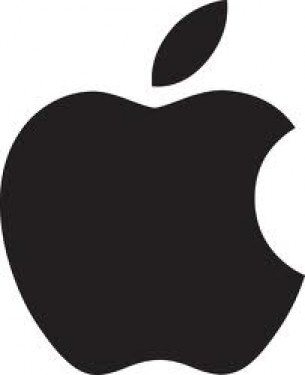We talk with author and media theorist Douglas Rushkoff, who has published 10 books on media, culture, and technology. He joins us to discuss his most recent work, Present Shock, about living in today’s immediate, always-on world.
In this video segment Douglas discusses the decline in asset profitability for U.S. firms over the past 40 years, and why he doesn’t see corporations like Apple Inc. (NASDAQ:AAPL) and Google Inc (NASDAQ:GOOG) as Digital Age companies. The full version of the interview can be found here.
A full transcript follows the video.
It’s incredible to think just how much of our digital and technological lives are almost entirely shaped and molded by just a handful of companies. Find out “Who Will Win the War Between the 5 Biggest Tech Stocks” in The Motley Fool’s latest free report, which details the knock-down, drag-out battle being waged among the five kings of tech. Click here to keep reading.
Brendan Byrnes: I wanted to ask you about a few examples in the book. One thing you cite is a Deloitte study that says asset profitability for U.S. firms over the past 40 years has steadily fallen by 75%. In the book you say corporations have successfully accumulated most of the financial resources out there. They don’t know how to reinvest it to make more.
Why is this, and what do you think has happened over those 40 years, considering it’s still been a pretty good 40 years for the stock market — S&P going from around 100 to over 1,600 now — where does this go in the future, and how has that happened over the past 40 years?
Douglas Rushkoff: Really what we’re saying is that corporate profitability, as a portion of net worth, has been going down. Even if they’re still making money, their ability to make money with their assets has been going down, really 60-70 years. This was even before the Internet.
They’re good at collecting money. They’ve been very good at sponging money, but then once they have that cash it’s very hard for them to figure out, “How do we spend this cash in a way to make money?”
The reason why this is true, and this is the thing that — it’s interesting, Alan Greenspan was just starting to hint at this at the very end of his career, in his last couple of congressional testimonies. The reason why this is true is because of the bias of central currency.
The operating system underneath all of this is finally a central currency, and it’s a very specific kind of currency with a very specific bias. There used to be currencies … some of them were biased toward transaction, and other ones were biased toward storage.
The problem with that was we ended up with a rising middle class. This was way back — 11th, 12th century — all the transaction-based currencies that promoted the velocity of money and the creation of value didn’t really favor the wealthy. They didn’t favor the monarchy, and it led to an imbalance of power, at least as far as the monarchs were concerned, so they put in place central currency, which is lent into existence and has to be paid back at interest.
It’s really a kind of currency that favors investment but doesn’t favor transaction. It doesn’t favor the momentum and velocity of money. That’s what’s happened, so when you have that tool as the only tool for the job, you end up collecting all this money. You end up becoming more and more like a bank, but less and less value can be created just doing stuff.
Byrnes: You can definitely see it with an Apple Inc. (NASDAQ:AAPL) sitting on, what, something around $150 billion in cash. They don’t know what to do with it.
Rushkoff: Right, and that’s really a problem of the operating system, which is why, then, when you look at these first Digital Age companies, whether it’s Apple Inc. (NASDAQ:AAPL) or Google Inc (NASDAQ:GOOG) or Facebook Inc (NASDAQ:FB), they’re not genuinely Digital Age companies, at least as far as I see it.
They’re sort of the last Industrial Age companies, doing digital things, in the industrial model. When we start to see businesses go private, when they start to buy themselves back from their shareholders because they no longer want to be just so subjected to the weight of money, you’ll start to see some interesting things happening.
The article Why Companies Are Struggling to Invest Their Cash originally appeared on Fool.com.
Brendan Byrnes owns shares of Apple. The Motley Fool recommends and owns shares of Apple Inc. (NASDAQ:AAPL), Facebook Inc (NASDAQ:FB), and Google Inc (NASDAQ:GOOG).
Copyright © 1995 – 2013 The Motley Fool, LLC. All rights reserved. The Motley Fool has a disclosure policy.






